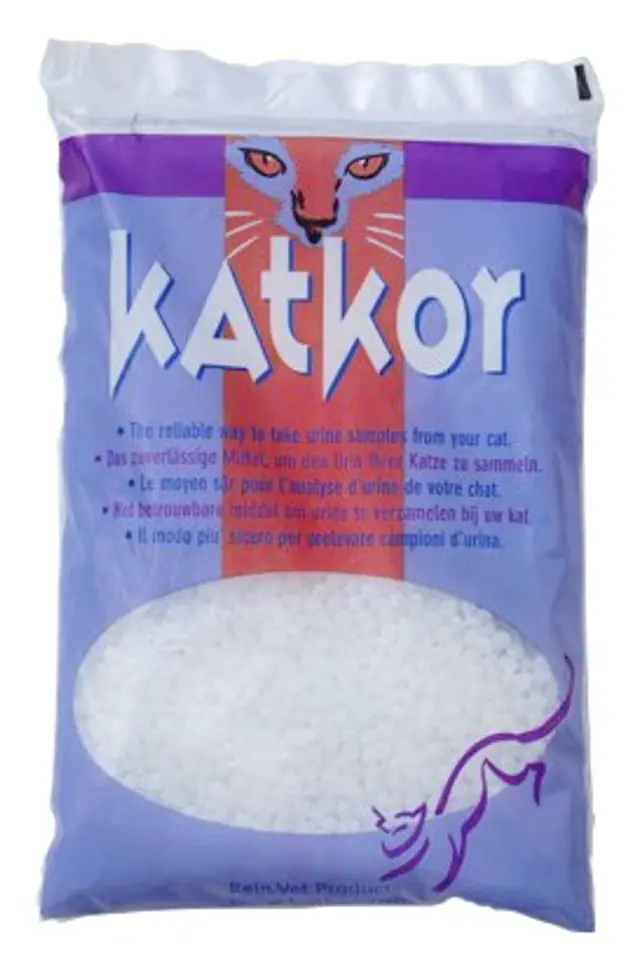Katkor is a new, reliable way to diagnose urolithiasis.
Katkor is great for collecting urine samples.
- The package includes a pipette and a container for a urine sample.
Recognizing the type of urolithiasis is important to choose the right therapeutic diet for the cat.
Katkor offers more:
- Katkor can be used to take samples of urine, protein, glucose, blood acetones and mass analysis.
- KatKor is also suitable for stool sampling for the analysis of parasite eggs and fermentation markers.
Katkor Warranty
Studies by AZU (Utrecht Academic Hospital, the Netherlands) have shown that KatKor in no way affects pH levels, protein levels, or white/red blood cells in the urine (1996, FL projects).
Studies have shown that granules do not absorb or emit calcium, magnesium and phosphate (Z. Versuchstierkd 1990;. 33; 259-263).
Instructions for use:
1. Clean the litter box thoroughly. Rinse with clean, lukewarm water to remove any remaining traces of cleaning agent. Dry the litter box with kitchen paper or toilet paper.
2. Pour the KatKor substrate in the middle of the litter box and set it aside for its original location.
3. Feces should be removed immediately to avoid contamination of urine.
4. A urine sample should be collected as soon as possible after urination. To do this, squeeze the air valve at the end of the included pipette and tilt the litter box on one corner. Place the pipette in this corner, and then you can collect urine by releasing the air valve.
5. Transfer urine to the container provided for it and deliver to the vet as soon as possible. Speed is important because urine composition and crystal formation can change over long storage.
6. If your cat does not respond to a small amount of KatKor substrate in the litter box, two KatKor bags can be used. However, only 1-2 ml of urine is required for analysis. One bag of KatKor is enough for 7 ml of cat urine. Cats produce on average from 35 - 80 ml (in feeding with dry food), up to 80 - 120 ml.
A cat with a bladder infection excretes only a few drops of urine at one visit to the litter box. In these cases, sampling will take 1 - 2 hours until enough urine is collected. Urine collected during this time can not be stored in the refrigerator.
7. If the cat does not want to use the KatKor substrate, its usual cat litter can be placed in the corner of the litter box, so that the familiar smell encourages the cat. However, it is important not to allow the sample to be contaminated by normal granules. This method should only be used in exceptional cases.



